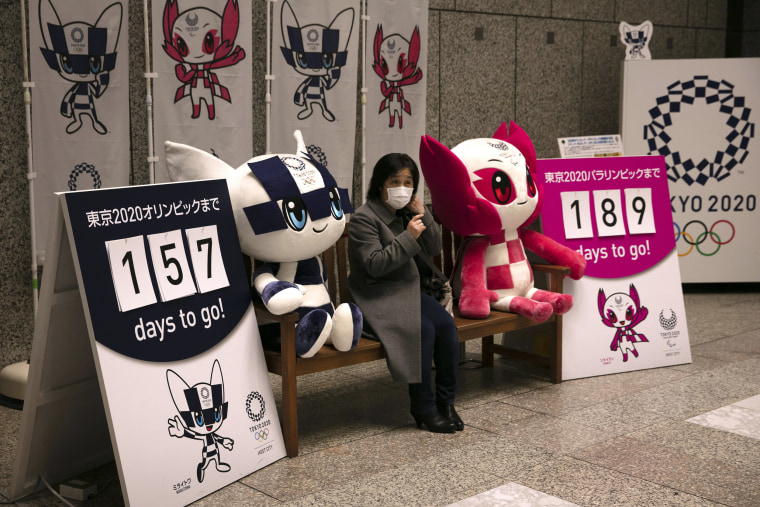From soccer games to marathons, concerns about coronavirus have led sports organizers to cancel or modify major events across the globe. With more than 80,000 reported cases of the disease, the viral outbreak continues to create uncertainty about future competitions, from track and field and Formula 1 to the ultimate global event, the 2020 Tokyo Olympics.
Last Sunday’s Tokyo Marathon, usually one of the largest in the world, went ahead with just 200 elite athletes and a request from organizers for spectators to stay home. The Hong Kong Marathon, scheduled for Feb. 9, was canceled; and the World Indoor Track and Field Championships, set for March 13-15 in Nanjing, China, have been postponed until next year.
For professional athletes whose bodies are their businesses, health is a top priority. As the epidemic spreads, more and more athletes are forced to weigh a potential threat against the financial loss of missing a competition.
“You’re going to get a lot of different answers,” said Chris Layne, managing director of Total Sports US, which represents some of the world’s top track and field athletes. “If you have an athlete at the pinnacle of their career, both in earnings and performance, maybe they can afford to miss an event versus someone fighting to get to that point.”
Track and field athletes don’t typically earn the lucrative salaries seen in the NBA, NFL, tennis or international soccer. The biggest shot for these athletes to make money lies in prizes and sponsorship deals. To earn either, you have to participate in events. That makes the impact of a missed event more significant, according to Layne.
“If you do six events and say you earn $500, that $3,000 lets you keep performing,” he said. “Track and field is really a global sport in terms of events so it could snowball with an athlete losing six, seven, eight times to compete and make a name for themselves. You could be taking away a season’s worth of earning potential.”
One of the bigger sponsorship opportunities for track and field athletes lies in the Olympics, which provide nearly unparalleled exposure. But if coronavirus continues to be a threat, the decision about whether to risk competing could be out of athletes’ hands.
Dick Pound, a senior member of the International Olympic Committee, said a decision about whether to proceed with holding the event would need to be made by late May. If the coronavirus isn’t contained by that point, Pound said cancellation could be a possibility.
For now, the IOC isn’t planning to cancel the Games, which have dealt with potential health threats in the recent past. There were concerns about bird flu ahead of the 2018 Pyeongchang Olympics, Zika during the 2016 Rio Olympics, and swine flu before the 2010 Vancouver Olympics.
